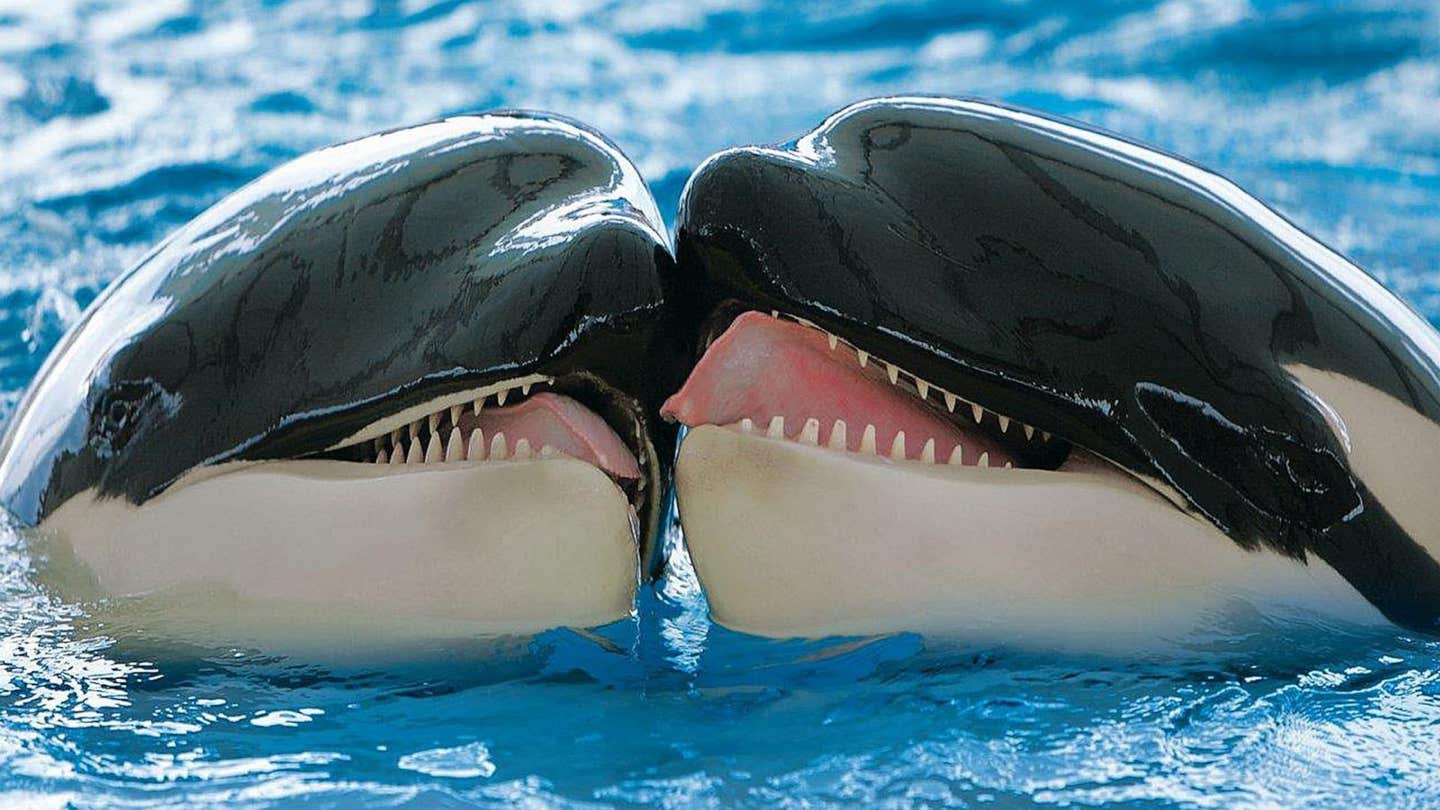Killer whales might be getting smarter and that may not be good news
Killer whales, have shown us that they’re not just apex predators but evolving intellectual giants of the sea.

[Oct. 25, 2023: Staff Writer, The Brighter Side of News]
A pair of playful humpback whales were captured on camera performing a double breach off Maui. (CREDIT: Creative Commons)
In a world where nature's wonders never cease to amaze, orcas, also known as killer whales, have shown us that they're not just apex predators but evolving intellectual giants of the sea. Recent events and observations have brought to light a series of behaviors that testify to the burgeoning intelligence and adaptability of these marine mammals.
Back in March 2019, the coast of southwestern Australia was the stage for a scene both incredible and gruesome. For the first time, researchers documented a pod of orcas tactically hunting down one of Earth's largest animals: the blue whale.
About a dozen killer whales were seen taking bites out of the massive creature, slowly exhausting it over the span of an hour until it finally succumbed. Though this was the inaugural recorded event, it hasn't remained an isolated incident.
Further reports have surfaced concerning some unique and shocking predatory behaviors from the killer whales. Near Spain and Portugal's shores, a group of orcas has been documented ramming boats with such force that they inflict considerable damage, occasionally sinking them.
Related News
In other regions, eyewitnesses have described orcas kidnapping baby pilot whales. Perhaps even more astonishingly, some orcas have developed a taste for shark liver, systematically removing it from their prey.
What could be driving these new, astounding behaviors? Deborah Giles, a prominent orca researcher associated with the University of Washington and the nonprofit Wild Orca, provided insights.
“These are animals with an incredibly complex and highly evolved brain. They've got parts of their brain that are associated with memory and emotion that are significantly more developed than even in the human brain,” she remarked.
Within pods, younger orcas keenly observe and mimic hunting techniques from older members, especially the dominant matriarch. (CREDIT: CLINT RIVERS, EAGLE WING TOURS, PWWA)
However, it's essential to note that while the brain anatomy remains the same, the whales' capacity to learn and adapt appears to be on the rise. Social learning plays a pivotal role. Within pods, younger orcas keenly observe and mimic hunting techniques from older members, especially the dominant matriarch. This continuous learning and adaptability might be the very reason for the upsurge in their new hunting methods.
Marine ecologist Josh McInnes from the University of British Columbia sheds light on this phenomenon, explaining, “This behaviour may be being shared between individuals, and that's maybe why we're seeing an increase in some of these mortality events.”
Orcas (Orcinus orca) attacked an adult blue whale off the coast of Australia and inserted their heads inside the whale's mouth to feed on its tongue. (CREDIT: John Totterdell)
While the increase in intelligence and adaptability may be advantageous for hunting, it could also be impacting the killer whales' social structures. Michael Weiss, a behavioural ecologist and research director at the Center for Whale Research in Washington state, points out the downside. “Their social bonds get weaker because you can't be in a big partying killer whale group if you're all hungry and trying to search for food,” he stated.
Could the increasing intelligence and adaptability of orcas be leading to a shift in their social structures? As large pods may start to break up in search of sustenance, the intricate dynamics of these marine mammals' societies might be on the brink of change.
Orcas continue to demonstrate that they're not just top predators but also continually evolving thinkers. As we observe and marvel at their increasing intelligence and adaptability, there's also a poignant reminder: the constant evolution of nature and the intricate balance of ecosystems. How the killer whales' new behaviors will shape their future and the marine world remains a captivating area of research and observation.
For more science and technology stories check out our New Discoveries section at The Brighter Side of News.
Note: Materials provided above by The Brighter Side of News. Content may be edited for style and length.
Like these kind of feel good stories? Get the Brighter Side of News' newsletter.
Joseph Shavit
Head Science News Writer | Communicating Innovation & Discovery
Based in Los Angeles, Joseph Shavit is an accomplished science journalist, head science news writer and co-founder at The Brighter Side of News, where he translates cutting-edge discoveries into compelling stories for a broad audience. With a strong background spanning science, business, product management, media leadership, and entrepreneurship, Joseph brings a unique perspective to science communication. His expertise allows him to uncover the intersection of technological advancements and market potential, shedding light on how groundbreaking research evolves into transformative products and industries.



